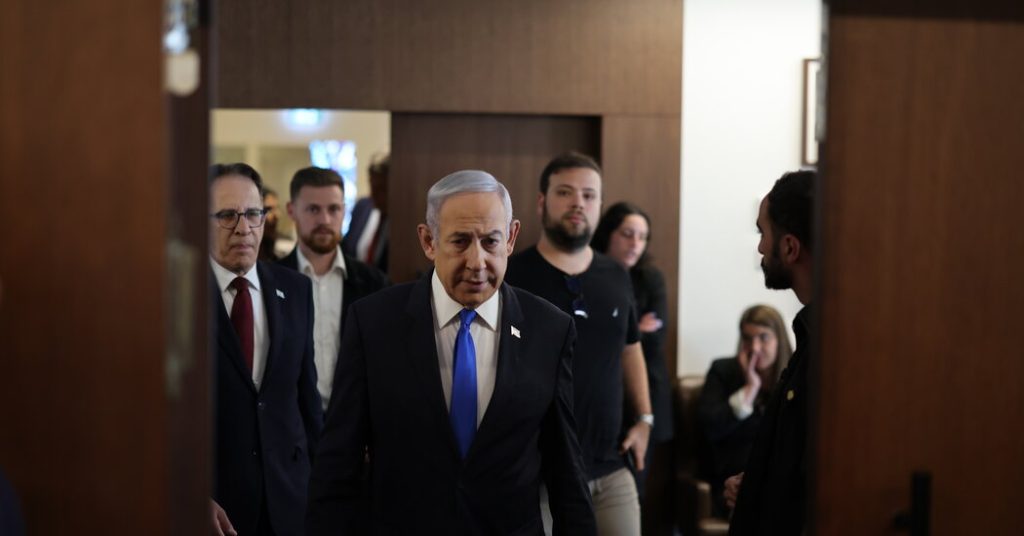Since the Hamas-led attack on Israel in October, Prime Minister Benjamin Netanyahu’s political future has appeared uncertain, with critics blaming him for security failures and his poll ratings dropping. However, a recent confrontation between Israel and Iran, including retaliations over missiles, has helped shift the dynamic. Netanyahu is now in a stronger domestic position, with improved approval ratings and a closer gap in the polls with his main rival, Benny Gantz. The conflict with Iran has shifted attention away from Netanyahu’s perceived failures in the Gaza war, playing to his strengths as a leader in standing up to Iran.
Netanyahu’s long-standing reputation in Israel as the leader with the experience and intelligence to handle Iran has been bolstered by recent events. While some question his strategy in Gaza, where he is accused of prolonging the conflict to retain power, Israelis trust his approach to Iran. He is seen as cautiously navigating the situation to prevent an all-out war while keeping Iran at bay. Netanyahu’s ability to recover from setbacks has been a hallmark of his political career, and analysts suggest that his latest revival may continue as long as tensions with Iran remain high.
Recent domestic crises and security failures have led to anger directed at political and military leaders beyond just Netanyahu, which could ultimately help him retain support. While protests against his government have grown, they lack a unifying cause or rallying cry, making it more challenging for his opponents to gain momentum. Netanyahu’s main rival, Gantz, has failed to articulate a clear alternative to Netanyahu’s wartime strategy or a long-term vision for Gaza, which has left some voters questioning his leadership. Despite this, Gantz’s alliance would still likely win in an election held today.
The Gaza war has the potential to create political and social ruptures in Israel similar to those following the Yom Kippur war in 1973. Military reservists returning from the Yom Kippur war played a role in driving political opposition to the government. However, the current conflict has lasted longer than the Yom Kippur war and has left many Israelis displaced or on active military duty. This has led to a sense among the public that now is not the time for a new election, as the focus remains on navigating the ongoing conflict with Gaza and Iran.
Mr. Netanyahu’s gradual political revival may be supported by his opponent’s failure to articulate a clear path forward, further solidifying his position in the face of domestic pressures. The ongoing tension with Iran has played to Mr. Netanyahu’s strengths as a leader with experience in dealing with regional threats. While there are still challenges ahead, including potential demands within his coalition and ongoing unrest due to the conflict, Mr. Netanyahu’s recent turnaround in approval ratings and poll standings suggest that he may be able to maintain his current position of relative strength in Israeli politics.


